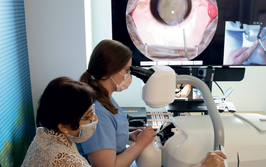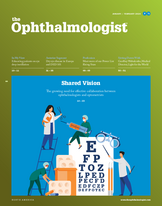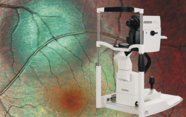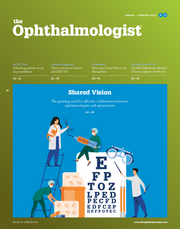When Ophthalmologists Become Funambulists
Is irreversible sight loss an acceptable side effect of pandemic precautions? As we look ahead (but not down!), we must prepare for a long walk on the tightrope: keeping our patients safe from COVID-19, while not compromising their vision.

I was initially surprised to hear that ophthalmology was the most affected medical specialty in the pandemic. But having given a little thought, I realized the factoid made perfect sense; we work in such close proximity to our patients – the majority of whom are elderly, which puts them in the most at-risk category of developing severe COVID-19. The most prevalent conditions suffered by ophthalmic patients are age-related: cataract surgery is the most commonly-performed surgical procedure in developed countries (1), and intravitreal injections for AMD are the second most common ophthalmic treatment (in some countries even exceeding the number of cataract surgeries).
In Russia, ophthalmic clinical activities and patient flow dropped by about 24 percent over the last few months. Interestingly, elective refractive surgery recovered much faster than cataract procedures, due to the age of the patient population, and their revised priorities.
Despite efforts to vaccinate large numbers of people globally, my prediction is that recovery from the pandemic is not going to be fast, with economic downturns further affecting healthcare once the virus is under control. With countless procedures and appointments canceled or postponed, many of our patients face irreversible vision impairment and sight loss, as well as significantly lowered quality of life. And that’s why it’s so crucial to establish the right balance between the risks (of COVID-19) and the benefits of continuing care.
For the past few months, I have been part of a group of expert ophthalmic surgeons from 10 European countries, including Turkey and Russia, called the European COVID-19 Cataract Group, or EUROCOVCAT. The group was set up to help us compare our experiences and develop solutions for these difficult times. We have collaborated with laboratory medicine and healthcare management specialists to get their perspectives. We have published insights on the impact of “deprioritization” of cataract surgery on patient outcomes (2), and we are currently working on establishing the impact of the pandemic on the number of intravitreal anti-VEGF injections administered, and how this has affected patients’ visual acuity. Our aim is to develop general recommendations for eye care professionals on how to best assess the risk-benefit ratio and make the right choice for their patients.
With telehealth and innovative diagnostic solutions at our disposal, we can and must establish successful protocols for addressing backlogs of ophthalmic patients during and after the pandemic. The time to act is now!
- E Prokofyeva et al., Acta Ophthalmol, 91, 395 (2013). PMID: 22715900.
- D Tognetto et al., Diagnostics (Basel), 10, 1035 (2020). PMID: 33276612.
- MD Toro et al., Eur J Ophthalmol, 31, 5 (2021). PMID: 32967466.
Professor of Ophthalmology and Deputy Director General at S. Fyodorov Eye Microsurgery State Institution in Moscow, Russia













